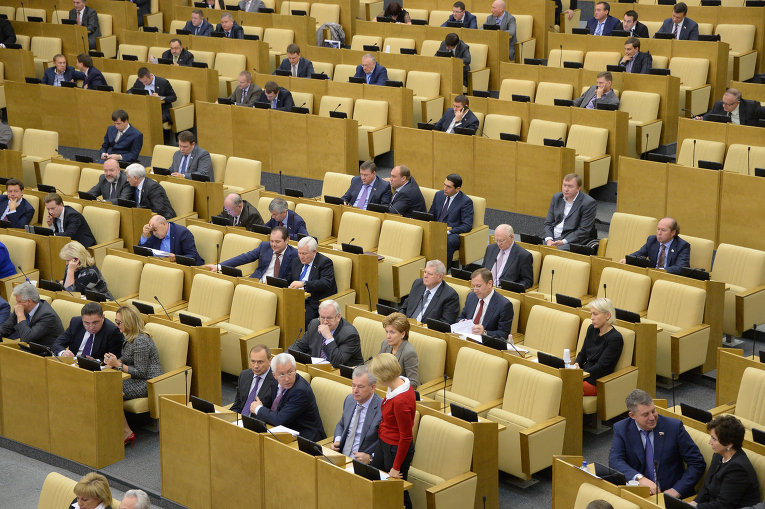MOSCOW, December 6 (RAPSI) - A draft amnesty decree targeting those convicted of having committed non-violent crimes may be submitted to the State Duma within a week, Kommersant daily reported Friday. The amnesty is arranged to coincide with the 20th anniversary of the Constitution of the Russian Federation.
According to the newspaper, several persons involved in the 2012 Moscow riot case may be released, but the amnesty wouldn't apply to certain high-profile cases, including those against Pussy Riot, Greenpeace activists, opposition leader Alexei Navalny, or YUKOS CEO Mikhail Khodorkovsky.
The list of crimes excluded from the draft amnesty decree includes particularly hooliganism under aggravating circumstances (Pussy Riot members and Greenpeace activists), embezzlement (Navalny) and money laundering (Khodorkovsky and his business partner Platon Lebedev), the newspaper said.
While meeting with Russian Human Rights Commissioner Vladimir Lukin and the chairman of the Kremlin human rights council Mikhail Fedotov Wednesday, Russian President Vladimir Putin supported the draft amnesty.
According to Putin, the amnesty would not apply to individuals who committed crimes against representatives of government, primarily law enforcement agents.
“I agree with your suggestion in general. We will refine this document along with the State Duma lawmakers, and I’m asking you to join in a work as actively as you can,” Putin told Fedotov and Lukin.
However, President Putin's spokesman, Dmitry Peskov said that the document will be refined.
The State Duma Committee's meeting is provisionally scheduled for December 9. According to the newspaper, over 30,000 people may be granted amnesty. And around 1,300 convicts may be released from prisons.
The newspaper explains that the amnesty would apply to individuals convicted of minor offenses and medium-gravity crimes. It would most immediately impact minors, women with minor children, pregnant women, women over 55, men over 60, and certain disabled people, according to the report.
Meanwhile, the amnesty wouldn't apply to people who committed heavy and especially grave crimes and individuals convicted of intentional crimes more than twice.



